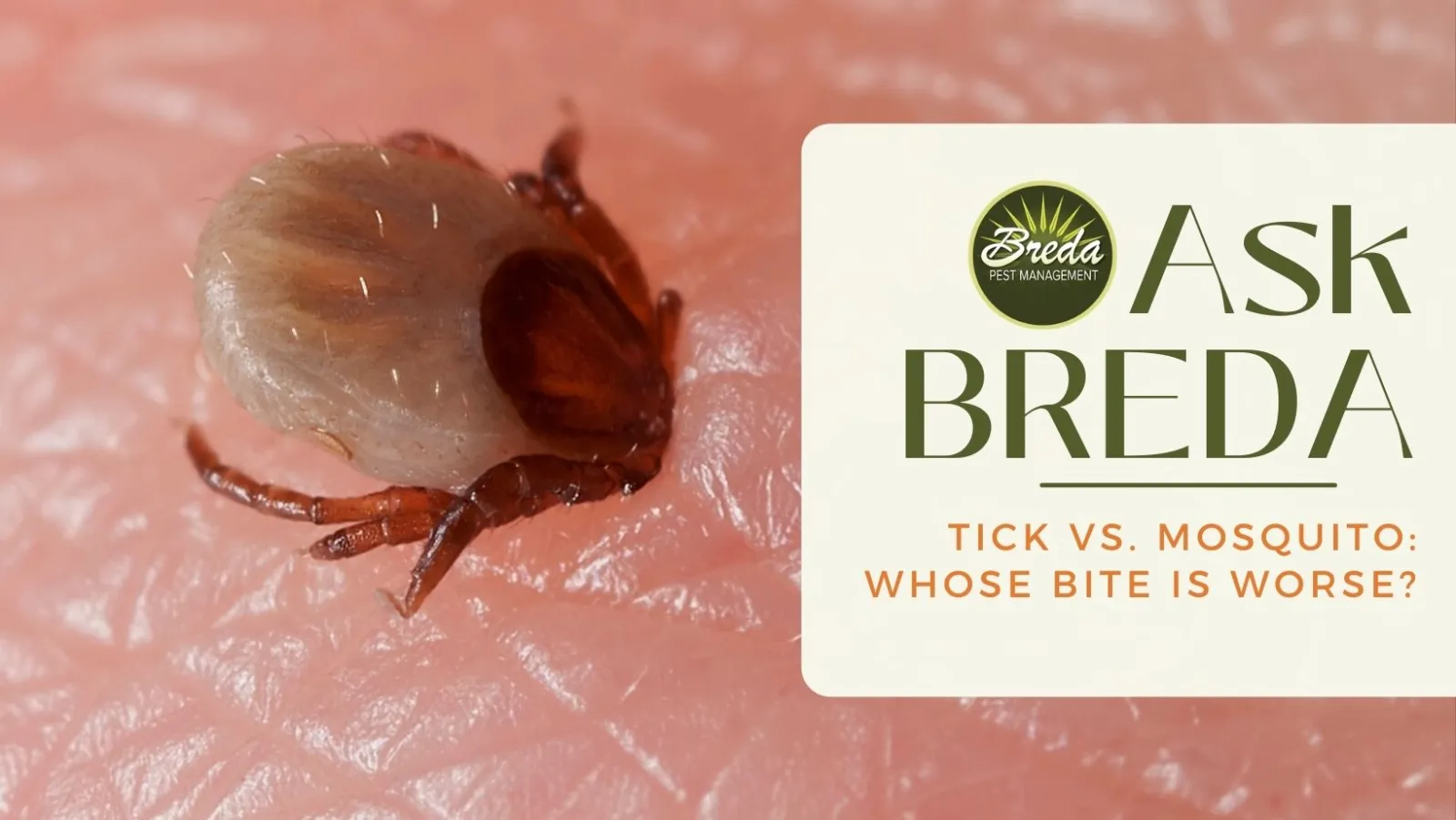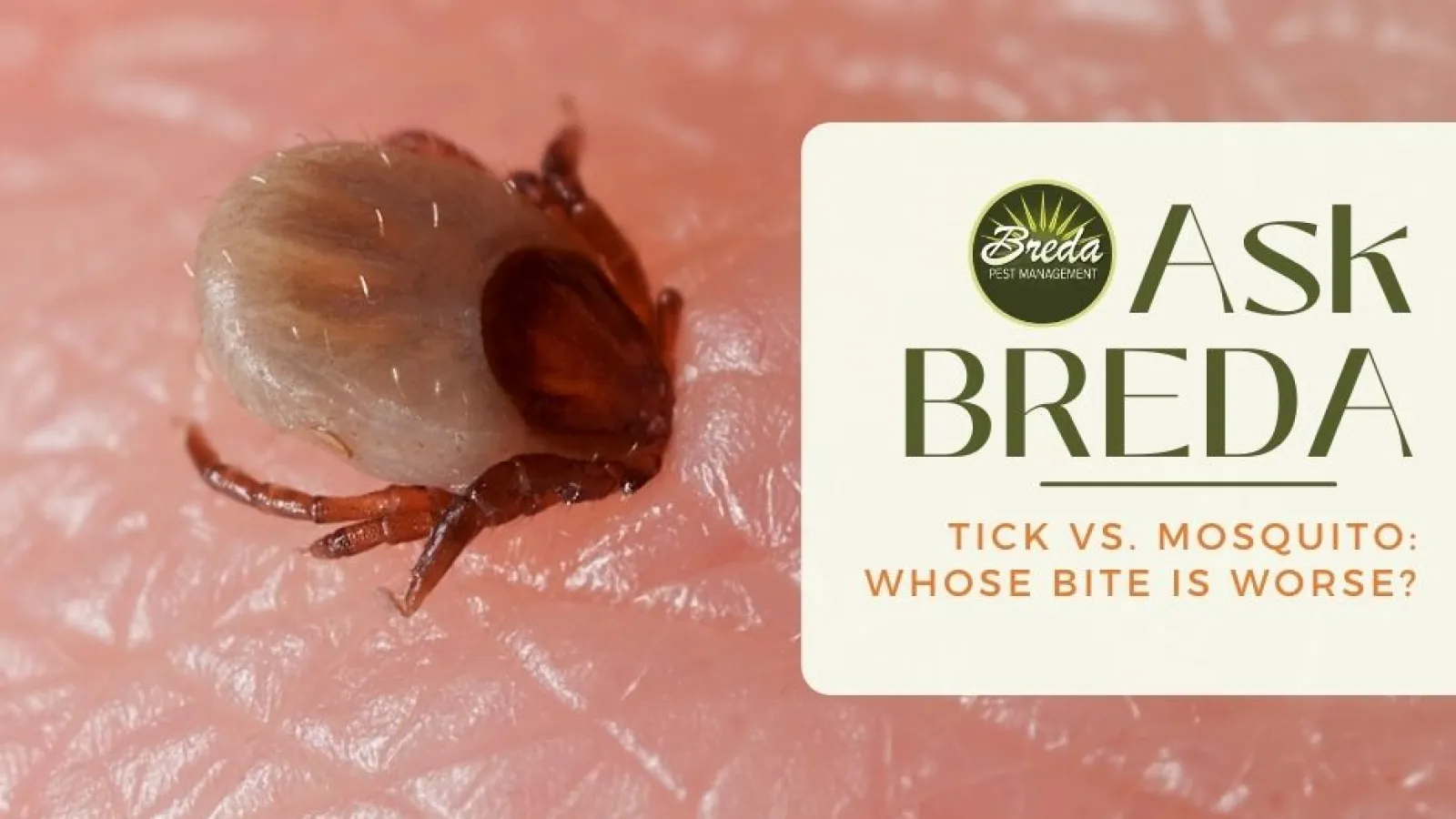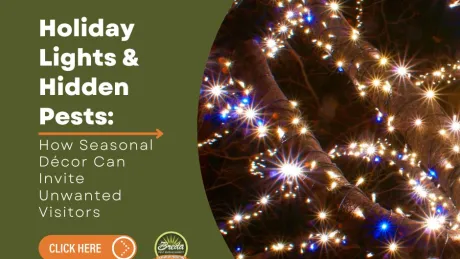
Learn about the difference between a tick bite and a mosquito bite
We love providing Metro Atlanta homeowners with superior pest control service and top-notch information on how to combat common insects and critters in Georgia. But we also know that sometimes you just have a random question you'd love a quick answer for.
If you've got a pest question, reach out to us on Facebook and Instagram with your question and use the hashtag #AskBREDA. Then check back to the blog each month to see if we tackle your question!
This month, we received these questions:
Question: What's worse to be bit by: a tick or a mosquito?
Is there really a winning scenario here? In all honesty, both bugs are equally as bad to be bit by. Ticks can carry Lyme disease and other diseases, and there is no cure for Lyme disease. Mosquitoes can carry many viruses, many that are also without a cure. Rather than focus on which is worse to be bit by, let's focus more on how to avoid both bugs!
Between ticks and mosquitoes, ticks are actually easier to avoid getting bit by, since ticks sit on low-lying branches, waiting for you to brush up against them so they can grab on. Mosquitoes have the advantage of flight, so avoiding them is much trickier. So how can you enjoy the great outdoors this summer? If you live near woods, make sure kids stay out of them as much as possible and teach them about doing "tick checks." Removing a tick within the first 24 hours is key to preventing diseases, so it's important to get you and your children comfortable and confident in finding ticks.
For mosquitoes, you can actually protect your entire yard from them from March until October. How? With BREDA's mosquito control treatment! We use an all-natural treatment that covers your property with a residual product and keeps your yard protected for 28-30 days after application. We also make every effort to avoid treating flowering shrubs and trees so bees and other pollinating insects can perform their tasks unharmed. And if you spot any mosquitoes after treatment, we will come back out and retreat for free. For more information on how to get started, click here!
Question: I have wasps and carpenter bees flying around the exterior of my home. Should I be worried?
It is extremely common to see both wasps and carpenter bees flying around your home this time of the year. Food sources are plentiful for both and temperatures are staying nice and warm, which means it's time for both of these pests to come back and start building their colonies. Female wasps are out building their nests and laying eggs, and those eggs don't take very long to hatch. Regularly look up and under covered areas to see if female wasps are making their nests. If you've noticed more aggressive wasps around your home, those are likely freshly hatched ones.
Carpenter bees are mating right now and the female will bore holes to lay her eggs. Those eggs will hatch in late spring into early summer. Compared to wasps, carpenter bees are very docile and very unlikely to sting. Sawdust around the exterior of your home is a main indicator of carpenter bee activity.
If you've spotted one or both of these insects flying around outside, it's best to make an appointment for treatment now. The longer you let both of these pests build and grow their nests and hives, the harder it will be to get rid of them when everyone is hatched, hot, and hungry.
If you find yourself needing pest control and want it handled thoroughly, don't hesitate to give us a call. The BREDA Guarantee promises to fix your pest problem and keep it fixed—no matter the circumstances. Schedule a consultation online or give us a call at 770-466-6700.



